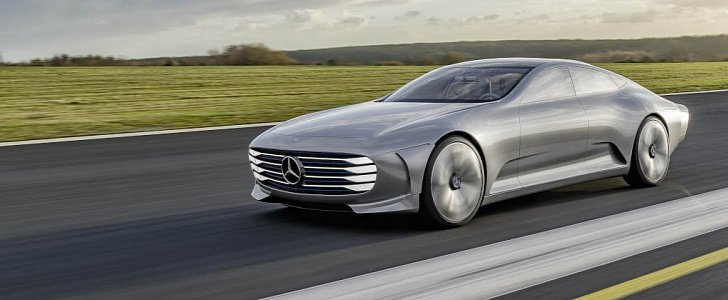The simple fact is that technology has been moving way too fast lately. Most people, especially those past the halfway point of their lives, aren't used to this highly-sustained rhythm at which the cars we drive have changed in the past ten years.
We've gone from naturally aspirated gasoline engines to sticking turbos on the tiniest of engines; we've developed the hybrid technology, come up with plug-in hybrids and made the prospect of electric vehicles a very real present and an even more likely future. Finally, the automotive industry has introduced a number of features that turn regular cars into semi-autonomous vehicles. Things like adaptive cruise control, lane keeping assist or emergency braking, they all take control and responsibility out of the driver's hands.
They all happened so fast, though, that some people haven't had the chance to experience them. If you bought an entry-level car five years ago, you would have had none of these features, but you could still be driving it now just fine.
The study, conducted by the American Automobile Association, found out that three quarters of the drivers questioned said they would be "afraid" to ride in a self-driving car. And, to be honest, I wonder what were the other 25 percent thinking. Of course you'd be afraid. The first few rides would be terrifying. It doesn't mean they wouldn't do it; it just indicates that letting go and trusting a machine with your life (and that of your loved ones) isn't going to be a very straightforward process for most of us.
However, previous studies conducted by Volkswagen in Germany showed that people generally need very little time to accommodate to the idea of driverless cars once they're in such a vehicle. Tricked into thinking the car they're in drives itself (when instead there was a hidden human driver), the subjects only needed about ten minutes to relax and enjoy a ride where they could do whatever they want.
Other results of the AAA study suggest that most drivers are actually looking forward to the technology that would make driving easier and safer. For instance, 61 percent said they would opt for lane departure warning, self-parking, adaptive cruise control or other semi-autonomous technologies in their next car. So what this means is that they don't necessarily distrust the technology, but it's the thought of abandoning control they can't yet accept. And that's natural, it's probably connected to the self-preservation instinct, but it's something that can be worked with.
Brian Lathrop, a cognitive psychologist and senior manager of the Electronics Research Lab at Volkswagen Group of America, summed it up best for Spectrum IEEE: "You'll be sitting inside a robot which is responsible for your safety and the safety of people around you. With that technology, there is a much higher bar in achieving the trust of users."
They all happened so fast, though, that some people haven't had the chance to experience them. If you bought an entry-level car five years ago, you would have had none of these features, but you could still be driving it now just fine.
The study, conducted by the American Automobile Association, found out that three quarters of the drivers questioned said they would be "afraid" to ride in a self-driving car. And, to be honest, I wonder what were the other 25 percent thinking. Of course you'd be afraid. The first few rides would be terrifying. It doesn't mean they wouldn't do it; it just indicates that letting go and trusting a machine with your life (and that of your loved ones) isn't going to be a very straightforward process for most of us.
However, previous studies conducted by Volkswagen in Germany showed that people generally need very little time to accommodate to the idea of driverless cars once they're in such a vehicle. Tricked into thinking the car they're in drives itself (when instead there was a hidden human driver), the subjects only needed about ten minutes to relax and enjoy a ride where they could do whatever they want.
Other results of the AAA study suggest that most drivers are actually looking forward to the technology that would make driving easier and safer. For instance, 61 percent said they would opt for lane departure warning, self-parking, adaptive cruise control or other semi-autonomous technologies in their next car. So what this means is that they don't necessarily distrust the technology, but it's the thought of abandoning control they can't yet accept. And that's natural, it's probably connected to the self-preservation instinct, but it's something that can be worked with.
Brian Lathrop, a cognitive psychologist and senior manager of the Electronics Research Lab at Volkswagen Group of America, summed it up best for Spectrum IEEE: "You'll be sitting inside a robot which is responsible for your safety and the safety of people around you. With that technology, there is a much higher bar in achieving the trust of users."

